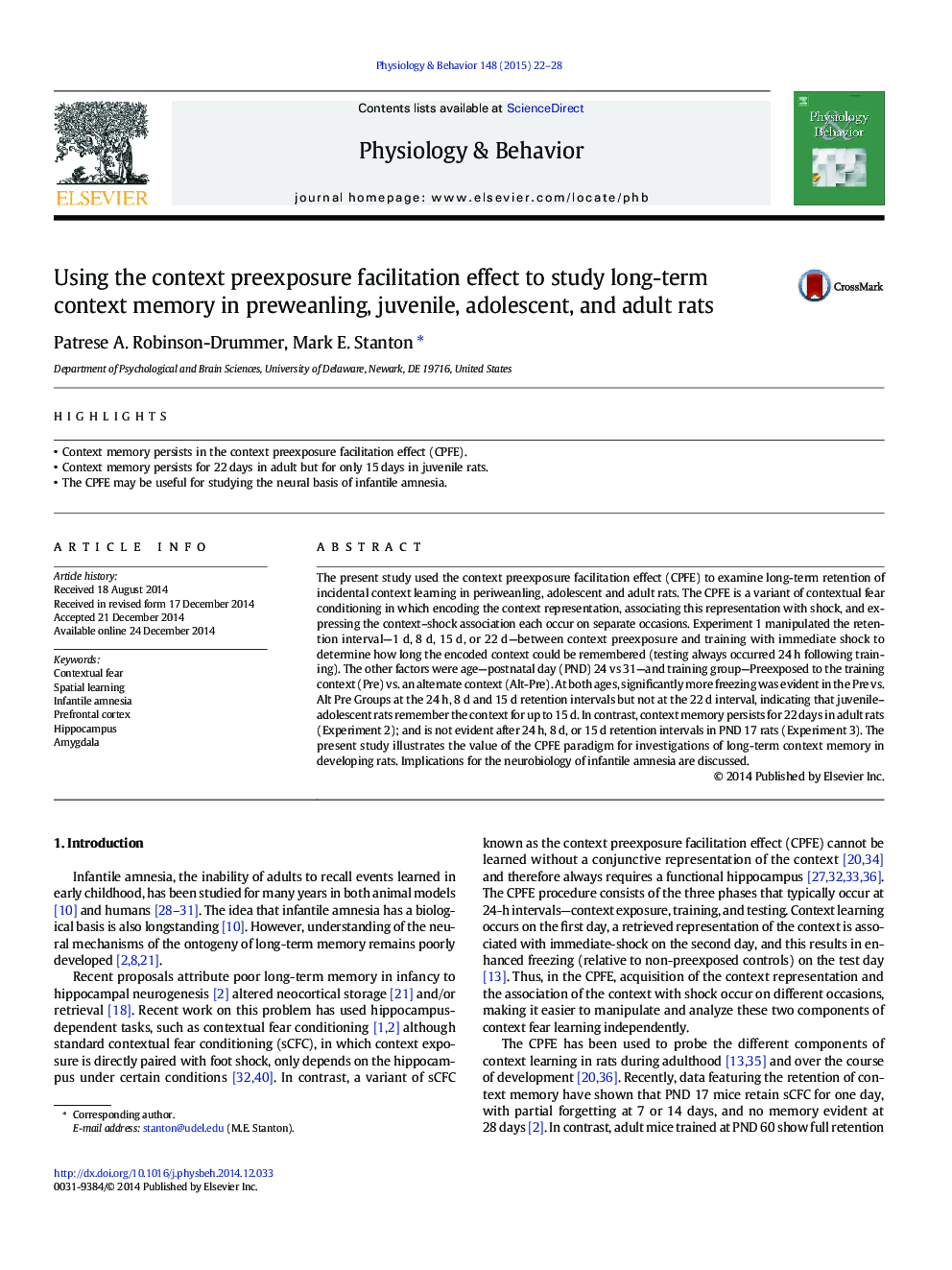| Article ID | Journal | Published Year | Pages | File Type |
|---|---|---|---|---|
| 2844089 | Physiology & Behavior | 2015 | 7 Pages |
•Context memory persists in the context preexposure facilitation effect (CPFE).•Context memory persists for 22 days in adult but for only 15 days in juvenile rats.•The CPFE may be useful for studying the neural basis of infantile amnesia.
The present study used the context preexposure facilitation effect (CPFE) to examine long-term retention of incidental context learning in periweanling, adolescent and adult rats. The CPFE is a variant of contextual fear conditioning in which encoding the context representation, associating this representation with shock, and expressing the context–shock association each occur on separate occasions. Experiment 1 manipulated the retention interval—1 d, 8 d, 15 d, or 22 d—between context preexposure and training with immediate shock to determine how long the encoded context could be remembered (testing always occurred 24 h following training). The other factors were age—postnatal day (PND) 24 vs 31—and training group—Preexposed to the training context (Pre) vs. an alternate context (Alt-Pre). At both ages, significantly more freezing was evident in the Pre vs. Alt Pre Groups at the 24 h, 8 d and 15 d retention intervals but not at the 22 d interval, indicating that juvenile–adolescent rats remember the context for up to 15 d. In contrast, context memory persists for 22 days in adult rats (Experiment 2); and is not evident after 24 h, 8 d, or 15 d retention intervals in PND 17 rats (Experiment 3). The present study illustrates the value of the CPFE paradigm for investigations of long-term context memory in developing rats. Implications for the neurobiology of infantile amnesia are discussed.
